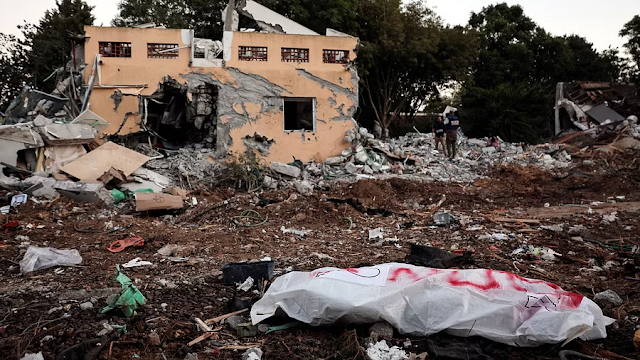Egypt Refuses to Allow Palestinians to Seek Refuge in Sinai
The Israel-Hamas conflict has once again brought the Israeli-Palestinian crisis to the forefront of international attention. As the violence escalates and civilians on both sides bear the brunt of the conflict, there are growing concerns about the safety and well-being of the Palestinian population in Gaza. In this context, Egypt's decision to refuse Palestinian refugees seeking shelter in the Sinai Peninsula has sparked significant debate and concern.
Historical Ties: Egypt shares a long border with the Gaza Strip and has historically played a vital role in the Israeli-Palestinian conflict. The 1979 Egypt-Israel Peace Treaty and the Camp David Accords have shaped the dynamics of this relationship.
Refusal to Allow Refugees: Despite the proximity and historical ties, Egypt has taken a firm stance against allowing Palestinian refugees from Gaza to seek shelter in the Sinai Peninsula. Egyptian authorities have cited concerns about security and sovereignty.
Security Concerns: Egypt government has expressed concerns that opening its borders to Palestinian refugees could lead to security issues in the Sinai region, which has faced its own set of challenges, including militant insurgency.
Humanitarian Dilemma: While Egypt's concerns about security are legitimate, the situation presents a significant humanitarian dilemma. Civilians in Gaza, including women and children, are suffering as a result of the conflict, and access to basic necessities, medical care, and shelter is severely limited.
International Pressure: Egypt's decision has prompted international organizations and nations to urge a reconsideration of its position. Humanitarian agencies, such as the United Nations, have called for the protection and well-being of civilians affected by the conflict.
Diplomatic Efforts: Amid the ongoing hostilities, diplomatic efforts are underway to mediate a ceasefire and address the immediate needs of the civilian population. Egypt, along with other international actors, is actively involved in these efforts.
Long-standing Conflict: The Israeli-Palestinian conflict is a deeply entrenched issue with no simple solutions. The current violence underscores the urgency of addressing the root causes and working towards a lasting peace in the region.
Hope for a Resolution: As the conflict continues, the hope remains that all parties involved will prioritize the safety and well-being of civilians and make concerted efforts to end the violence and find a path toward peaceful coexistence.
The situation in the region is complex, and the plight of Palestinian refugees and civilians caught in the crossfire remains a pressing concern. The refusal to allow refugees into the Sinai Peninsula highlights the need for humanitarian considerations to be at the forefront of efforts to address the ongoing crisis. A resolution to the Israeli-Palestinian conflict remains an essential goal for lasting peace and stability in the region.

.png)
Comments
Post a Comment